In Old Oklahoma
Brief Synopsis
Cast & Crew
Albert S. Rogell
John Wayne
Martha Scott
Albert Dekker
George "gabby" Hayes
Marjorie Rambeau
Film Details
Technical Specs

Synopsis
In 1906, Easterner Catherine Allen scandalizes her community by writing a racy romance novel and deciding to quit her job as a schoolteacher to seek adventure in the West. As Catherine boards the train, she meets oilman James E. Gardner, who immediately takes a liking to her. Believing her to be as experienced as her romantic heroine, Jim makes advances toward her, which Catherine indignantly spurns. The train stops when cowboy Daniel Somers flags it down, and Catherine gets him to sit near her to discourage Jim. Catherine intends to go to Kansas City, although Jim asks her to go to Sepulpa, Oklahoma, where he has discovered oil. Her choice is made for her when she is put off the train for being in Jim's private car. Dan also gets off the train and is greeted by his old pal, stagecoach driver Desprit Dean. Desprit warns Dan that their hometown of Sepulpa has changed drastically during Dan's absence, as Jim's oil discoveries have caused much dissension. Catherine also boards Desprit's coach, and Jim is picked up when his car breaks down. They then stop at one of Jim's oil rigs, and Catherine is impressed when the well comes in. Less happy is farmer Wilkins, who used to own the land on which the rig stands. Although Jim did buy the land, Wilkins feels that he has been cheated, and Dan is forced to stop them from fighting. Later, Jim asks Desprit to help him negotiate with Chief Big Tree, as the well's main oil pool lays underneath Indian lands. Dan also attends the next day's meeting, and when Jim offers Big Tree 12.5 percent of his profits, Dan advises the chief to refuse the deal. Jim is infuriated by Dan's interference, but the small ranchers and Indians oppose the greedy Jim and support Dan, asking him to go to Washington, D.C. to ask President Theodore Roosevelt for the oil rights. Dan at first refuses, as he is not an ambitious man, but when it becomes clear that Catherine is attracted to Jim's wealth and power, he decides to beat Jim at his own game in order to compete for her. Catherine does flirt with Dan, but hotel owner Bessie Baxter, Dan's friend, realizes that she is doing it only to make Jim jealous enough to propose. The factions travel to Washington, where Dan, who fought with Roosevelt in Cuba, reveals his plan to give the Indians a fifty percent share of the profits. Roosevelt gives Dan four months in which to deliver ten thousand gallons of oil to a Tulsa refinery, and if he does not make the deadline, the oil rights will go to Jim. Dan returns home and gets to work, but as his well nears completion, Jim's half-breed servant, The Cherokee Kid, deliberately sets off an explosion that kills a worker and destroys the rig. Catherine, who has fallen in love with Dan, pleads with Jim to leave Dan alone, but when Dan sees them together, he assumes the worst and breaks off his relationship with Catherine. Later, Dan and his men steal Jim's portable rig and bring in the well, but because Jim has bought the only pipeline to Tulsa, they must build giant barrels and race to the refinery to meet the deadline. The next day, Bessie brokers a reconciliation between Dan and Catherine during the massive campaign to get the oil to the refinery. Despite more sabotage by Jim and his men, Dan gets the oil to Tulsa on time, and after besting Jim in a fistfight, Dan embraces Catherine and begins plans to build their house.

Director
Albert S. Rogell
Cast

John Wayne

Martha Scott

Albert Dekker

George "gabby" Hayes

Marjorie Rambeau

Dale Evans
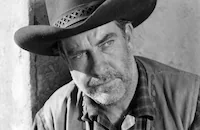
Grant Withers
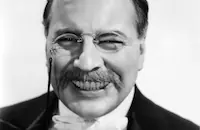
Sidney Blackmer
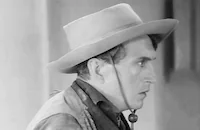
Paul Fix

Cecil Cunningham

Irving Bacon

Byron Foulger
Anne O'neal
Richard Graham
Pearl Early
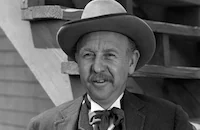
Charles Arnt
Bill Borzage
Jack Kenney
Lane Chandler
Mike Lally
Bud Geary
Dick Rich
Charles Jordan
Dick Botiller
Eddie Chandler
Wade Crosby
Linda Brent
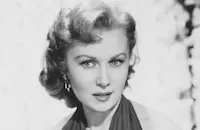
Rhonda Fleming
Wesley Brent
Mary Croft

Will Wright
Edward Gargan
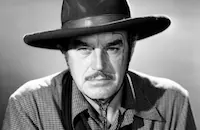
Harry Woods

William Davidson
Al Hill Sr.
Harry Shannon

Myrna Dell
Kenne Duncan
Jack Kirk
Leroy Mason
Larry Stewart
Tom London
June Terry Pickerell
Jack Raymond

Charles "slim" Whitaker
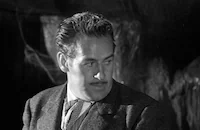
Roy Barcroft
John Dilson
Charles Bates
Gus Glassmire
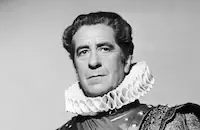
Robert Warwick

Emmett Vogan
Edmund Cobb
Hooper Atchley
Stanley Andrews
Rebel Randall
Arthur Loft
Crew
Daniel J. Bloomberg
Johnny Bourke
Thomson Burtis
Phil Ford
Eleanore Griffin
Ethel Hill
Joe Kane
Russell Kimball
Howard Lydecker Jr.
Jack Marta
Ernest Nims
Robert North
Walter Plunkett
Walter Scharf
Otto Siegel
Dick Tyler
Howard Wilson

Film Details
Technical Specs

Award Nominations
Best Score
Best Sound
Articles
Martha Scott, 1914-2003
Martha Ellen Scott was born in Jamesport, Missouri on September 24, 1914, and raised in Kansas City, where a high school teacher encouraged her interest in acting. She majored in drama at the University of Michigan and after graduation, she joined The Globe Theatre Troupe, a stock company that performed truncated Shakespeare at the Chicago World's Fair in between 1933-34. She went to New York soon after and found work in radio and stock before playing making her breakthrough as Emily Webb in Our Town. When the play opened on Broadway in February 1938, Scott received glowing reviews in the pivotal role of Emily, the wistful girl-next-door in Grovers Corners, New Hampshire, who marries her high school sweetheart, dies in pregnancy and gets to relive a single day back on Earth. Her stage success brought her to Hollywood, where she continued her role in Sam Wood's film adaptation of Out Town (1940). Scott received an Academy Award nomination for best actress and was immediately hailed as the year's new female discovery.
She gave nicely understated performances in her next few films: as Jane Peyton Howard in Frank Lloyd's historical The Howards of Virginia (1940), opposite Cary Grant; the dedicated school teacher in Tay Garnett's Cheers for Miss Bishop (1941) in which she aged convincingly from 17 to 85; and as a devoted wife to preacher Frederic March in Irving Rapper's warm family drama One Foot in Heaven (1941). Sadly, Scott's maturity and sensitivity ran against the glamour-girl persona that was popular in the '40s (best embodied by stars like Lana Turner and Veronica Lake) and her film appearances were few and far between for the remainder of the decade.
Her fortunes brightened in the '50s, when she found roles in major productions, such as a suburban wife trapped in her home by fugitives, led by Humphrey Bogart, in William Wyler's taut The Desperate Hours (1955) and played Charlton Heston's mother in the Cecil B. Demille's The Ten Commandments (1956) and again for William Wyler in Ben-Hur (1959). Scott found steady work for the next 30 years in matronly roles, most notably on television, where she played Bob Newhart's mother on The Bob Newhart Show (1972-1978) and the mother of Sue Ellen Ewing on Dallas (1978-1991). Her second husband, pianist and Pulitzer Prize-winning composer Mel Powell, died in 1998. Survivors include a son and two daughters.
by Michael T. Toole

Martha Scott, 1914-2003
Quotes
Trivia
Notes
The working title of this film was War of the Wildcats, which was also the title of the viewed print. According to Daily Variety and Hollywood Reporter news items, the New York Theatre Guild sued Republic over the use of the title In Old Oklahoma, arguing that it was "unfair competition" for their musical Oklahoma. The case was settled when Republic agreed to withdraw the film from distribution in the United States by January 1, 1945, and not re-release it under the same title. Hollywood Reporter also noted that Leonard Fields was originally scheduled to produce the picture and that Albert Dekker was borrowed from Paramount. News items about location shooting conflict, but an June 18, 1941 Hollywood Reporter item stated that scenes would be shot in Cedar City, Kanab and other Utah locations and the Kaibob National Forest of Arizona. Other possible locations mentioned in earlier Hollywood Reporter items were Modesto, Bakersfield and Taft, CA. Although a June 3, 1941 Hollywood Reporter item stated that real-life "early-day oil field characters" Tom Slick, Jake Hammond and J. B. Joyner would be portrayed in the film, they are not mentioned in the finished picture. Modern sources include the following actors in the cast: George Chandler, Curley Dresden, Yakima Canutt, Shirley Jean Rickert, Linda Scott, Jess Cavan, Pat Hogan, Charles Agnew, Fred Graham, Oril Taller, Juanita Colteaux, Bonnie Jean Harley, and Bob Reeves. The film received Academy Award nominations in the Music (Music Score of a Dramatic of Comedy Picture) and Sound Recording categories. A Lux Radio Theatre version of the story was broadcast on March 13, 1944 and starred Roy Rogers, Martha Scott and Albert Dekker.

Miscellaneous Notes
Released in United States 1943
Rhonda Fleming had a bit part.
Released in United States 1943













